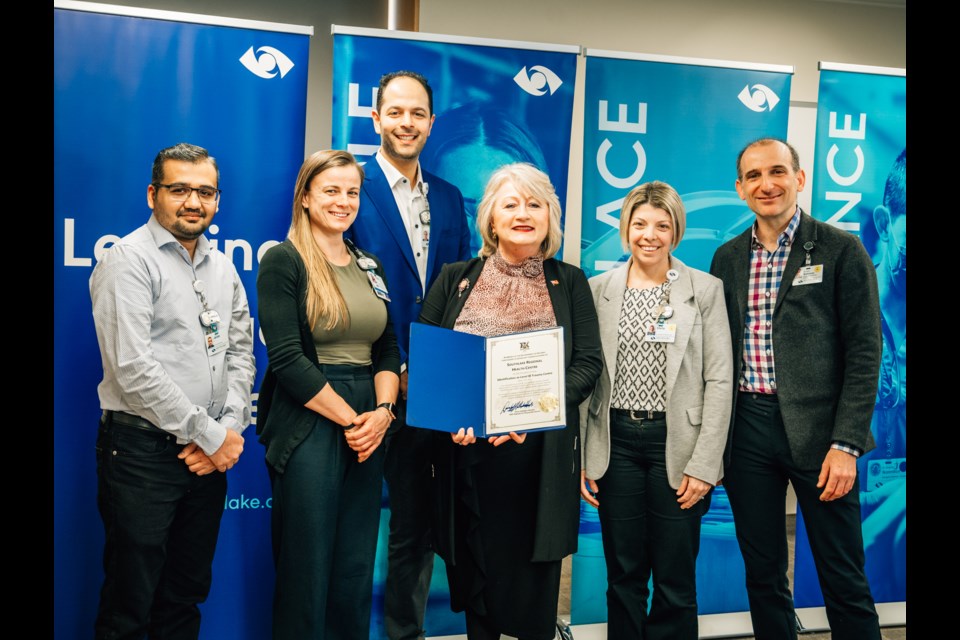Southlake Regional Health Centre has formally joined the network of hospitals able to provide a higher level of trauma care to patients seriously injured in accidents, falls, sports and violence incidents.
The Newmarket hospital has been identified as a Level III trauma centre, and is receiving $250,000 from the provincial government to create a program centred on trauma care for medium-acuity patients.
“Trauma is the leading cause of death for Canadians under the age of 45, cutting short many young lives,” Stella Johnson, director of emergency and mental health at Southlake, said in a news release. “While we already care for more than 500 medium acuity trauma patients annually, this formal recognition means we can continue to do so as part of an inclusive, integrated and accountable system that leverages expertise from leading centres like Sunnybrook, Unity Health Toronto and SickKids Hospital to improve outcomes for patients, close to home.”
"New patients enter our emergency department every four-and-a-half minutes," said Dr. David Makary, vice-president of medical affairs, at the announcement today at the hospital. "Many of these patients come to Southlake because of traumatic injuries. In these moments, they need the best care possible, as quickly as possible."
As part of the designation, frontline health care workers have and will continue to receive training to handle all types of situations.
"One of the things that was required as part of our implementation activity was standardized training for emergency physicians, which we have been able to complete, as well as a focus on trauma nursing care competencies for emergency nurses and critical care staff as well," said Johnson.
As a Level III trauma centre, specialized teams will allow clinicians to quickly assess and address life-threatening injuries, control bleeding, stabilize vital signs and prevent further harm. Delaying care can lead to complications, permanent damage, and even death.
“Data shows lower mortality in areas with Level III trauma centres because patients have access to immediate care in the right place," said Leeor Sommer, trauma medical director. "Timely treatment can significantly improve the chances of survival and recovery, so trauma patients need rapid access to specialized trauma care.”
Southlake was identified as one of six initial sites in Ontario that fulfilled the criteria to function as a Level III trauma centre due to its multidisciplinary team of medical professionals, from surgeons, emergency medicine specialists, and critical care nurses available 24 hours, seven days a week to care for injured patients.
"I want to extend my gratitude to the entire hospital, hospital community including every staff worker, health care provider, and volunteer, because we know it takes a village, and we have quite the village here at Southlake," said Newmarket-Aurora MPP Dawn Gallagher Murphy.
Patients with high-acuity trauma will continue to be transferred to hospitals in the Greater Toronto Area.



